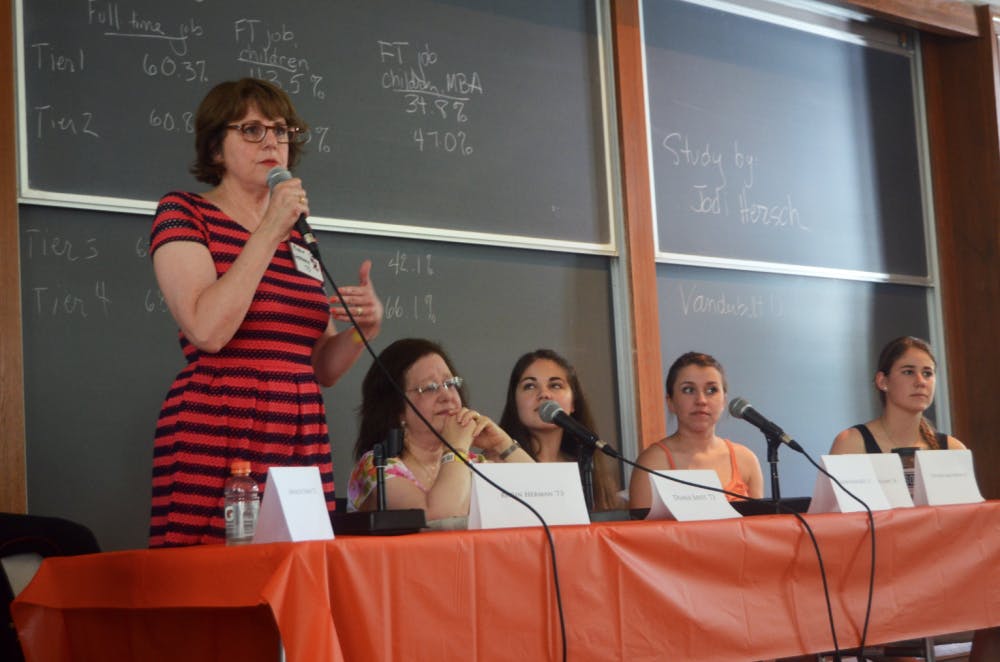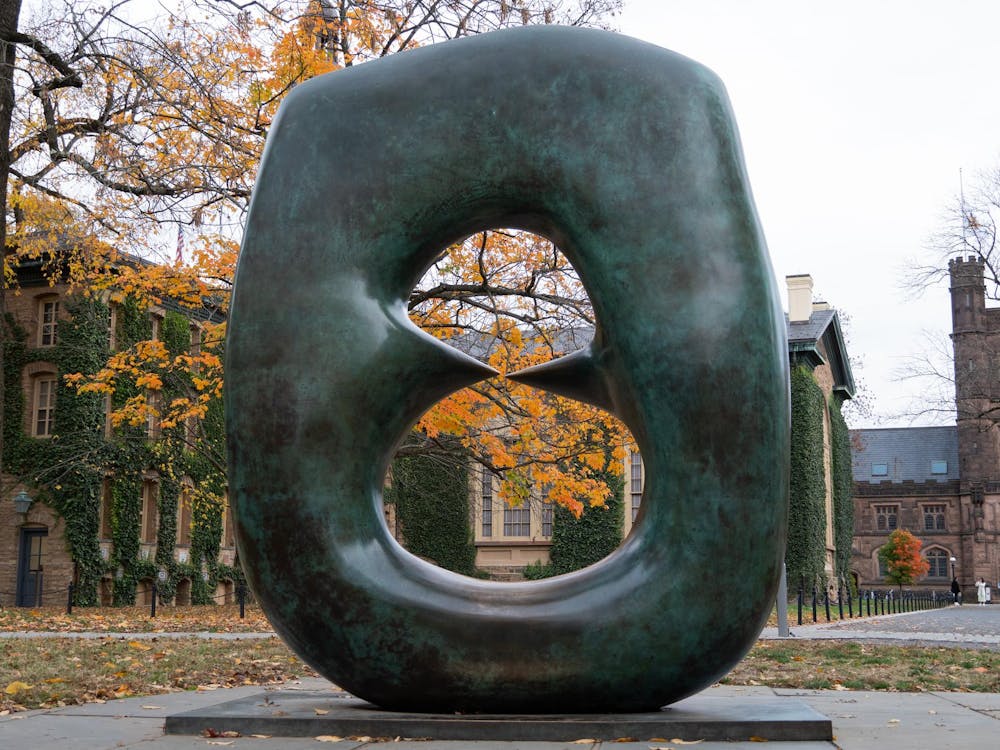 Current and former female editors of The Daily Princetonian discussed the status of women at Princeton 40 years after the University's first female students graduated at a panel discussionon Friday.
Current and former female editors of The Daily Princetonian discussed the status of women at Princeton 40 years after the University's first female students graduated at a panel discussionon Friday.
The panelists at the event, titled “40 Years [of headlines] Later: Women at Princeton and Beyond,” included two alumnae and three current editors. Robin Herman ’73 is a former managing editor for the ‘Prince’ and Diana Savit ’73 is a former senior editor. Annalyn Swan’73, who was the first female Editor-in-Chief of the ‘Prince,’ moderated.
Swan is a Pulitzer Prize-winning biographer, a visiting lecturer in the English department and a former editor of Newsweek. Herman is a writer, a former assistant dean for the Harvard School of Public Health and a former reporter for The New York Times. Savit is a managing partner for Savit and Szymkowicz, LLP. All three are married and have children.
Victoria Majchrzak ’15 is currently an Associate Sports Editor, Sarah Schwartz ’15 is the Opinion Editor and Abigail Williams ’14 is the Street Editor.
The panelists began by discussing the gender inequalities they encountered through their work for the ‘Prince.’
Schwartz spoke about the criticisms she has received from commenters on her columns relating to feminist topics. Williams discussed Street's “Love and Lust in the Bubble” series and said male contributors are more frequently praised when writing about romantic feelings for women while female contributors are often ridiculed. Majchrzak concluded by talking about her role as a female sports editor with a predominantly male staff.
“As a sports editor, one of the questions that I get a lot from my friends is, ‘Do your writers respect you just as much as your male counterparts?'” Majchrzak said. “A lot of the time, just meeting new people, I have gotten critical comments that kind of imply that I don’t know as much about athletics and sports because I am female.”
As one of the first women on the staff, Herman said she was originally not assigned a sports story like her male peers and had to insist on covering athletic events. Savit, however, joined the staff a year later and was told she had to cover athletic events because all reporters had to write both news and sports stories.
On the topic of life after graduation, the alumnae were clear in their message that women cannot plan for anything, including job prospects, fertility and how to raise their children.
The audience and alumnae panelists were particularly interested in the relationship between male and female students on campus, both in and outside of the classroom, and asked the student panelists about how women and men interact.
Schwartz outlined the findings of the2011 report from the Steering Committee on Undergraduate Women's Leadership, which found that women were less likely to take primary leadership positions in extracurricular activities, eating clubs and student government and instead take on behind-the-scenes roles.
“I think one of the most interesting things that I’ve heard coming from my female colleagues is a kind of agreement with the idea that men would be more qualified for a certain position,” Williams said. “If a woman runs [for office] a certain way, then she’s not going to be funny, so she’s not going to get the popular vote, or if she is attractive, then she’s not going to be taken seriously or if a women is seen as serious, then she’s kind of overbearing, rather than in control. I think this is something that we hear a lot—sometimes sarcastically, sometimes seriously—from men, but even from women. There are some peers that I have dealt with who agree with that statement.”

In the classroom, panelists observed that both male and female professors call on their male students more often and that male students raise their voices more during precepts.
“In precepts, I have been literally shouted down by male classmates who I don’t think are trying to stop me from talking; they just think that what they have to say is really important, so they talk over me,” Schwartz said.
In comparing the arguments of former Wilson School Dean Anne-Marie Slaughter ’80 in her Atlantic article “Why Women Still Can’t Have it All,” Facebook executive Sheryl Sandberg in her book “Lean In” and Yahoo executive Marissa Mayer as a vocal proponent of women in the workforce, the panelists said it is often difficult to know which advice to take.









